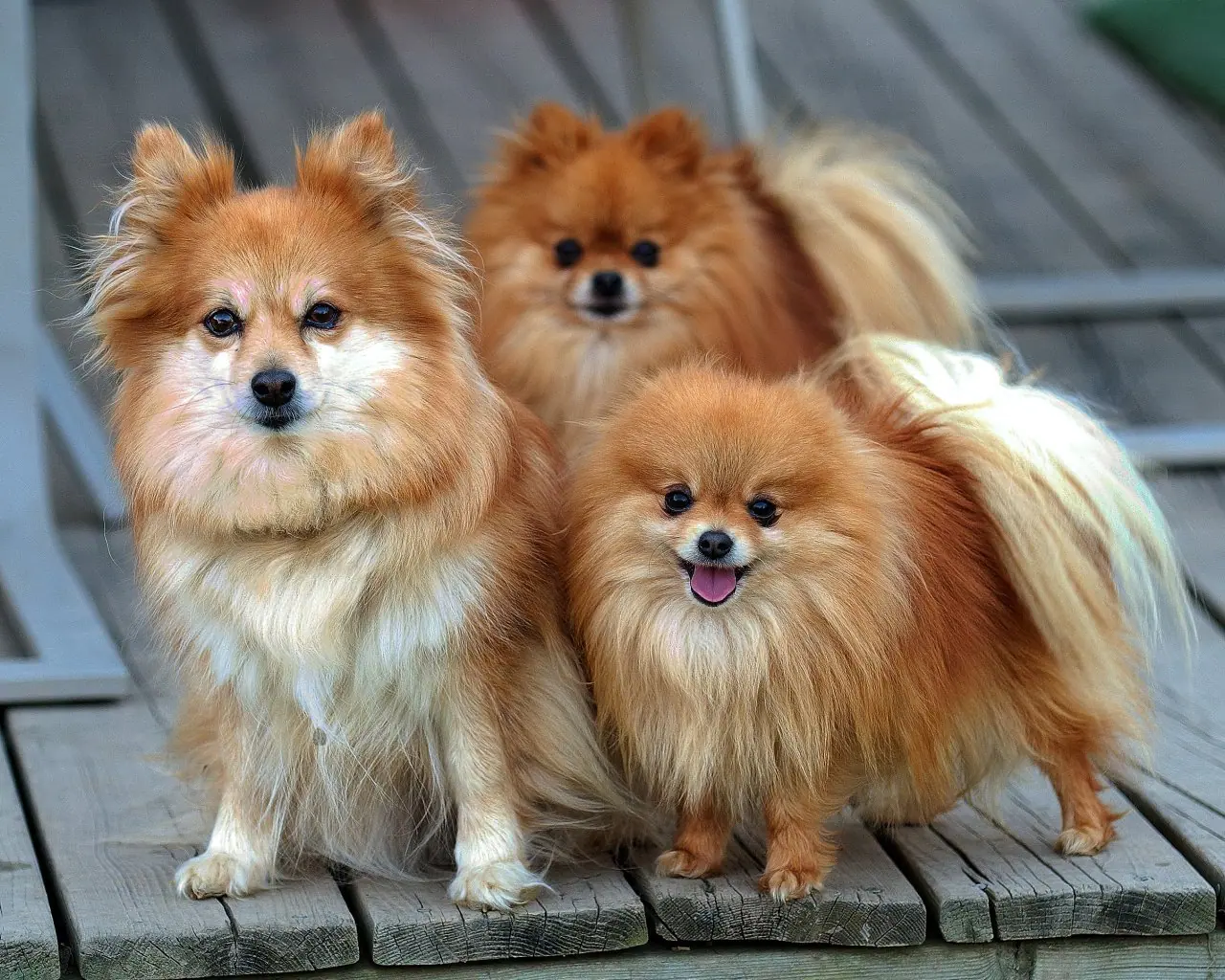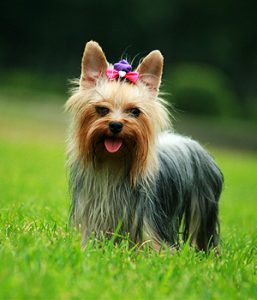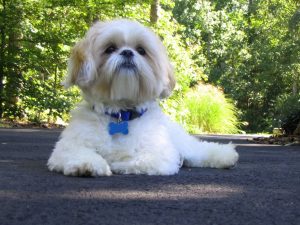Pomeranian

8340 North Thornydale Road, Tucson, AZ 85741, USA

American Hairless Terrier Chihuahua Chinese Crested Dog Hairless Terrier, American Japanese Chin Spaniel Mexican Hairless [Xoloitzcuintli] Papillon Pomeranian Rescues Xoloitzcuintli [Mexican Hairless]
Orange, CA 92866, USA
OCPoundHounds focus is to rescue primarily Pomeranians, Papillions, Chinese Crested and Japanese ...

Ocala FL 34472 United States
I go to the shelters (kill) weekly and save lives of peke poms and who ever needs me then. I am s...

Spring Hill, FL 34611, USA
We are a Pomeranian rescue and sanctuary located in Spring Hill, Florida. Our specialty are Poms ...

Brussels Griffon Cavalier King Charles Spaniel Chihuahua Chinese Crested Dog Dachshund English Toy Spaniel Havanese Italian Greyhound Maltese Miniature Pinscher Norfolk Terrier Norwich Terrier Papillon Pekingese Pomeranian Poodle, Miniature Poodle, Toy Pug Rescues Shih Tzu Silky Terrier Toy Fox Terrier Yorkshire Terrier
Westfield IN 46074 United States
ALL Creatures Matter Rescue is here to help small breed dogs in need and ensure they get the care...

Austin TX 78766 United States

Spring TX 77393 United States
5.00 (1 review)
Garland, TX 75043, USA
214-775-0648214-775-0648
1-888-886-9740

6214 W. 10150 N. Highland UT 84003 United States
Rescues are NOT a source for breeding stock. Most rescue dogs are spayed/neutered before placemen...

16915 SE 272nd St., #100-210 Covington WA 98042 United States
Smidget Rescue specializes in finding homes for small dogs under 25 pounds, like Chihuahuas, Pome...
Pomeranian Rescue Ohio Dogs Seeking Loving

Breed Group : TOY
Origin : GERMANY
Average Height : 7" - 12"
Average Weight : 4 - 7 lbs.
Life Span : 12 - 16 years
Photo Courtesy of : SoCalPomRescue
Size
1 2 3 4 5 6 7 8 9 10Energy
1 2 3 4 5 6 7 8 9 10Intelligence
1 2 3 4 5 6 7 8 9 10Ease of Training
1 2 3 4 5 6 7 8 9 10Hypo-Allergenic
1 2 3 4 5 6 7 8 9 10Shedding
1 2 3 4 5 6 7 8 9 10Good with Kids
1 2 3 4 5 6 7 8 9 10Good with Other Pets
1 2 3 4 5 6 7 8 9 10Guard Dog
1 2 3 4 5 6 7 8 9 10
Pomeranian Rescue Organizations

8340 North Thornydale Road, Tucson, AZ 85741, USA

American Hairless Terrier Chihuahua Chinese Crested Dog Hairless Terrier, American Japanese Chin Spaniel Mexican Hairless [Xoloitzcuintli] Papillon Pomeranian Rescues Xoloitzcuintli [Mexican Hairless]
Orange, CA 92866, USA
OCPoundHounds focus is to rescue primarily Pomeranians, Papillions, Chinese Crested and Japanese ...

Ocala FL 34472 United States
I go to the shelters (kill) weekly and save lives of peke poms and who ever needs me then. I am s...

Spring Hill, FL 34611, USA
We are a Pomeranian rescue and sanctuary located in Spring Hill, Florida. Our specialty are Poms ...

Brussels Griffon Cavalier King Charles Spaniel Chihuahua Chinese Crested Dog Dachshund English Toy Spaniel Havanese Italian Greyhound Maltese Miniature Pinscher Norfolk Terrier Norwich Terrier Papillon Pekingese Pomeranian Poodle, Miniature Poodle, Toy Pug Rescues Shih Tzu Silky Terrier Toy Fox Terrier Yorkshire Terrier
Westfield IN 46074 United States
ALL Creatures Matter Rescue is here to help small breed dogs in need and ensure they get the care...

Austin TX 78766 United States

Spring TX 77393 United States
5.00 (1 review)
Garland, TX 75043, USA
214-775-0648214-775-0648
1-888-886-9740

6214 W. 10150 N. Highland UT 84003 United States
Rescues are NOT a source for breeding stock. Most rescue dogs are spayed/neutered before placemen...

16915 SE 272nd St., #100-210 Covington WA 98042 United States
Smidget Rescue specializes in finding homes for small dogs under 25 pounds, like Chihuahuas, Pome...
-
Pomeranians got their name from the region of 'Pomerania', an area between Germany and Poland. Documented history about dogs show that "Pom's", as they are often called, were developed via the ancient Spitz breeds.
Original Pomeranians were much larger in size, weighing in well up and over 30 pounds. Initial documents about the Pom's show that they were developed to work with Sheep herders, partnering with their Master's in herding responsibilities.
Marie Antoinette, Emile Zola, Mozart and Queen Victoria all owned Pomeranians.
The British Kennel Club, with a nudge from Royalty initiated them into their books, and officially recognized the Pomeranian in 1870.
In 1888 Queen Victoria began breeding and showing these dogs.
It was Queen Victoria who started breeding Pomeranians down in size, and it was during her reign that the breed gained popularity throughout England.
They may be small but make no mistake, this breed has talents:Some of the Pom's make great watchdogs, do well in dog sports like Agility and love to perform tricks.
There is a famous story about a Pomeranian that Queen Victoria owned. She had been to Germany on a visit when she saw her 1st Pomeranian and brought him back to England with her. When she was dying, she asked that her favorite dog "Turi" the Pom be set beside her. She died with Turi at her side.
Poms love of learning and athleticism was easily seen and animal trainers in circuses recruited them to perform in travelling circuses throughout Europe in the 19th and early 20th centuries. -
• Proud, lively little dog.
• Intelligent, eager to learn, very loyal.
• Perfect companion dog.
• Docile temperament and affectionate.
• Alert, inquisitive and active.
• One of the most independent of the toy breeds.
• Needs firm, gentle disciplined training.
• Can be picky eaters.
• Can get along with other dogs, if introduced properly.
• Good watchdog.
• You need to be firm if they develop excessive barking nature.
• Teach it early to only bark a couple times when the doorbell rings. Control it's barking nature.
• Brilliant little guys, Poms love to perform & learn to do tricks.
• Poms bond closely to their owners and don't suffer being left alone well. They are quick to suffer from separation anxiety if left alone for long stretches of time.
• Can become willful, nervous, bold and temperamental, and are known to take on larger dogs if provoked.
• Can be reserved with strangers, barking at them excessively, growling, snapping and biting.
• Not recommended for children.
• Good companion dog for elderly people.
• Long, double coat, needs frequent brushing.
• Undercoat sheds twice/year.
• Constant shedder.
Temperament
Pomeranians are extremely intelligent and extroverted. They are very spirited dogs, and do well with spirited owners. They prefer a lot of interaction with their owners, which is why they are often used as companion dogs for single people. Due to the dog's small size, they are easy to transport, and love going everywhere with their humans.
Because of their small size, Pomeranians are not good dogs for small children. When children play rough with this sort of dog it can often make the dog fearful, nervous and snappish. In addition, the rough play of small children can easily injure this delicate toy breed. However, these dogs do quite well with older children who are calmer and more well behaved. If you choose a Pomeranian for a family with children, it is just as important to train the children as it is to train the dog.
Pomeranians can have a tendency to be yippy, and will often bark far too much. To make matters worse, many Pomeranians have a very high pitched bark that can be especially irritating. However, if you begin training them at an early age, you can teach the dog to bark only when appropriate.
Pomeranians tend to be very willful and dominant in their personalities, so early training is critical. They are somewhat cocky, and often will not hesitate to take on a dog that is four or five times their size, as they seem to have no recognition of how small they are. Because of these tendencies, training your Pomeranian thoroughly and at a young age is critical. They are independent and curious and are usually happy and alert dogs. They are full of energy and active, but since they are so small, they are not usually a nuisance. They love to do tricks and bond well to their owners, but are not typically overly clingy. They don't like to be left alone for long periods of time, so this is not necessarily a good breed for the family who is gone all day long.
Pom's can do well with other pets in the home, but they should be introduced early, since this breed has a tendency to be very dominant.
Health Problems
Pomeranians are prone to several different Health Problems. The most notable problem is early tooth loss, which is quite common in this breed. To prevent tooth loss, feed your Pomeranian a Diet of dry dog food to help keep his teeth and gums in good condition. In addition, it's important to have your Pomeranian's teeth cleaned professionally once a year.
Pom's can also be prone to eye and skin infections and some lines are prone to dislocated knee caps and Slipped stifle.
Grooming
The Pomeranian requires a fair amount of grooming. They are constant shedders and their long coats must be brushed frequently to keep them from getting tangled and matted. In addition, regular brushing helps prevent dandruff, which can be a problem with Pomeranians, and leads to itchy skin. However, if you brush the Pomeranian properly, starting at the head, parting the hair and brushing it forward, it will fall right into place. Pomeranians are very heavy shedders, so brushing them every day will also help you keep the hair at bay. Their eyes and ears should be cleaned daily, as they are prone to infections, and their teeth must be regularly cared for by the veterinarian, as well as receiving daily, or at least weekly, brushing at home. Feeding them dental treats and vitamin treats can help with their tooth problems, too.
When you need to shampoo your Pomeranian, dry shampoo works best, as regular shampoos can cause the dog to lose the natural oils in his coat. If you must shampoo with wet shampoo, keep shampooing to a minimum and be certain to use a mild shampoo especially formulated not to dry out the hair and skin. Since Pomeranians are prone to dry itchy skin, it's important to keep their natural oils intact.
Exercise
Pomeranians need a moderate amount of exercise, but can get what they need from running around in the house. They also love to walk, and can get sufficient exercise by just going on a daily walk with their owner. Though they are small, they can go on long walks without becoming overly tired. You'll find that this breed is energetic, but at the same time does not need a significant amount of exercise.
Training
The Pomeranian can be quite a willful and dominant dog, so training must begin early and must be consistent. It's very important that your Pomeranian knows that you're the boss. If this fact is not established early on, this breed can become very demanding and possessive of their owners and will refuse to listen to even the simplest commands. It is also important that these dogs are socialized early on to prevent them from being overly suspicious of strangers. Spend plenty of time working on appropriate and inappropriate barking, as Pomeranians are known to be excessive barkers when not properly.
It is imperative that your Pomeranian be taught not to be underfoot. Because of their small size, a Pomeranian can be seriously injured if he is stepped or sat on. They love to sleep under blankets and pillows, where they can be difficult to detect and easy to sit on. In addition, a Pomeranian can seriously injure himself or even kill himself if he jumps out of your arms or off the back of a high couch.
Pom's are notoriously hard to housebreak. Because they are so small, they can sneak off to any little corner and go to the bathroom without you ever knowing it. And, of course, once they've gone in the house, the pattern is established. This is one breed for which crate training is absolutely necessary. They should not be allowed to roam the house unsupervised for many months, until their bodies are mature enough to hold their urine and they are well trained enough to understand the appropriate places to go.
However, these dogs are very intelligent, and with the proper training, can be taught to do nearly anything they need to do. They love to do tricks and can be quite proficient at them. Pomeranians are very curious and inquisitive. This makes them somewhat easy to train, but does mean that you'll need to train them in a place where they can be focused, with few distractions.
Once properly trained, Pomeranians are suitable for many types of tasks. Because their energy level is high, they can be very hard workers. In the past, Pomeranians have been used for search and rescue dogs, particularly in post earthquake searches, where small dogs are needed to locate survivors. In addition, they are often used as the therapy dogs for the elderly and ill. Finally, they can be trained to be used as companion dogs for the hearing impaired.








